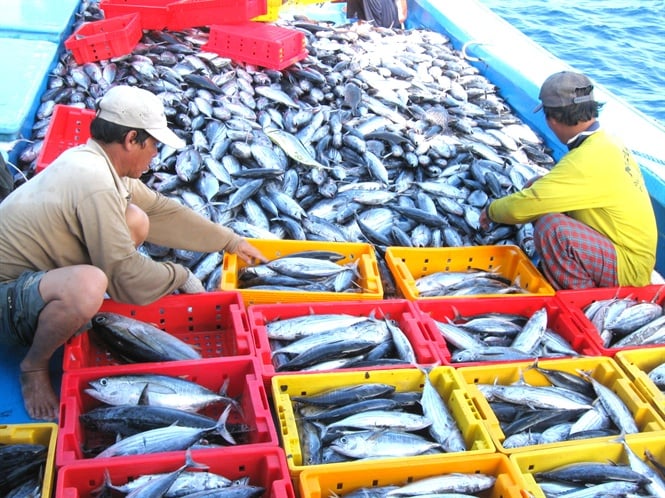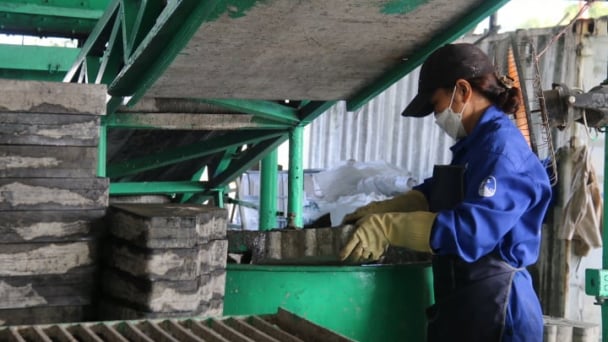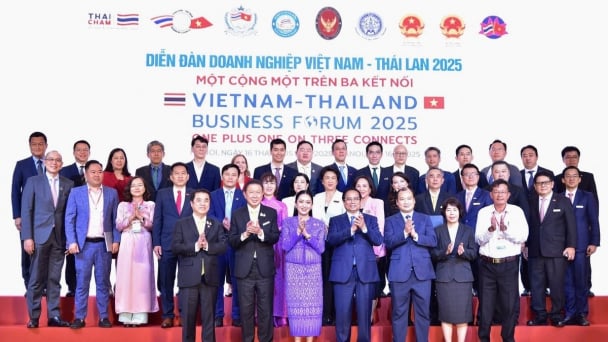May 19, 2025 | 10:21 GMT +7
May 19, 2025 | 10:21 GMT +7
Hotline: 0913.378.918
May 19, 2025 | 10:21 GMT +7
Hotline: 0913.378.918

Delegate Le Anh Tuan (Ha Tinh) said that removing the European Commission's yellow card for the seafood industry is a problem that needs to be promptly and effective handled.
During a session on October 27, Ha Tinh provincial delegate Le Anh Tuan stated that the removal of the yellow card issued by the European Commission (EC) to Vietnam's fisheries industry is one of the foreign affairs concerns that must be addressed promptly and effectively.
As a result of its prolonged existence, the portrait and reputation of Vietnam in the international arena have suffered, as well as the economic harm it has created in the sector of fisheries, directly impacting the livelihoods of Vietnamese fishermen.
Illegal, unreported, and unregulated (IUU) fishing has been out of control for years, according to the delegate. By May 2017, the European Commission warned and asked Vietnam to prevent and remove illegal fishing. Vietnam received an official "yellow card" warning in October 2017 for failing to demonstrate sufficient progress in the battle against IUU fishing.
Vietnam has taken a number of stringent measures to address the matter, but EC has yet to remove the yellow card. Recent violations by Vietnamese fishing vessels in certain waters may result in a red card. Consequently, the export of all fisheries products from Vietnam's catch will be banned to the EU, and many other nations are likely to follow suit. Then the economic impact will be enormous.
Le Anh Tuan urged that the government continue to bolster its management of fishing vessels and fishermen. Concerning the state of marine boundaries, it is crucial to increase the understanding of fishermen, management agencies, and specialized law enforcement personnel at sea.
In addition, he proposed intensifying negotiations with relevant countries on the planning of overlapping areas in order to quickly reach a consensus on a final demarcation line or an agreement on the application of a temporary solution for joint development cooperation in overlapping areas to ensure the fairness of the parties rights and obligations. The parties are anticipated to achieve an agreement in the near future regarding the protection and exploitation of biological resources in the exclusive economic zones of the high seas. Vietnam's competent authorities must have a prompt response in order to fight for the proper execution of citizen protection.
Regarding agriculture, Delegate Nguyen Quoc Han (Ca Mai province) stated that amidst the rapid changes and unpredictable fluctuations in 2022, the trend of increasing interest rates, and narrowing monetary and fiscal policies in many countries will result in a decline in global economic growth, the risk of supply chain disruptions, and instability in energy and food security.
In the country, inflation pressure intensified, and the prices of gasoline, crude oil, raw materials, and other inputs changed significantly, having a significant impact on several sectors and fields. In the meanwhile, diseases, natural disasters, hurricanes, and floods have hampered progress, causing a great deal of difficulty, destruction, and loss of life.
According to Delegate Nguyen Quoc Han, the outstanding contribution of the agriculture industry is particularly appreciated during difficult economic conditions. Since Vietnam is less affected than other countries due to the Government's flexible and adaptable management and other reasons, it is hard to deny the importance of the agriculture sector to socioeconomic stability. Despite its significance as the backbone of the economy, the sector is continually affected by economic developments.
Consequently, industrial input costs such as fertilizer, agricultural materials, fishing materials, and animal feed increase at a significant pace. Increased demand for agricultural resources necessitates handling environmental pollution, preventing and combating illness and epidemics, and adjusting to climate change.
Due to low production efficiency and even losses, the existence of agricultural producers is uncertain and challenging. Facing this circumstance, the delegate proposed that the government adopt preferential policies for the agriculture and fisheries sectors, therefore providing advantageous conditions for domestic and international businesses to invest, conduct research, and generate materials and products for agricultural and aquacultural activities.
Contributing to the reduction of input costs, the increase of productivity, and the discovery of a sustainable output for goods, consequently enhancing manufacturing efficiency and extending material and the spiritual life of the community.
According to the Vietnam Association of Seafood Exporters and Producers, Vietnam's exports of seafood to the EU rose by 95 percent in August compared to the same month the previous year.
In July, Vietnam's seafood exports dropped below USD 1 billion for the first time since March. From March to June, Vietnam's seafood exports remained at over USD 1 billion for four consecutive months. This trend continued in August, with sales decreasing to USD 917 million, or 3% less than July's turnover.
Translated by Linh Linh

(VAN) The German Agricultural Society (DLG) explores the possibility of establishing a mechanization service center in Vietnam’s Mekong Delta to support farmers in accessing and utilizing advanced machinery.

(VAN) On May 16, the Department of Water Resources Management, in collaboration with the Food and Agriculture Organization of the United Nations (FAO), held a signing ceremony for the GEF-8 project document.

(VAN) Food safety, mechanization, vocational training, and market opening are key areas of cooperation expected between the Vietnamese Government and the Federal Republic of Germany.

(VAN) Deputy Minister Nguyen Quoc Tri also expressed his hope that Cuba will soon overcome its current challenges, attain food security, and further expand cooperation with Vietnam.

(VAN) The project contributes to enhancing the resilience of communities vulnerable to the impacts of climate change, with a primary focus on local women.

(VAN) Green materials help save energy and resources. However, after more than 10 years, Vietnam has only developed over 200 green buildings with more than 6 million square meters of floor space.

(VAN) Vietnam - Thailand Business Forum 2025: One plus one on three connects, marking a milestone in the comprehensive strategic partnership between the two nations.